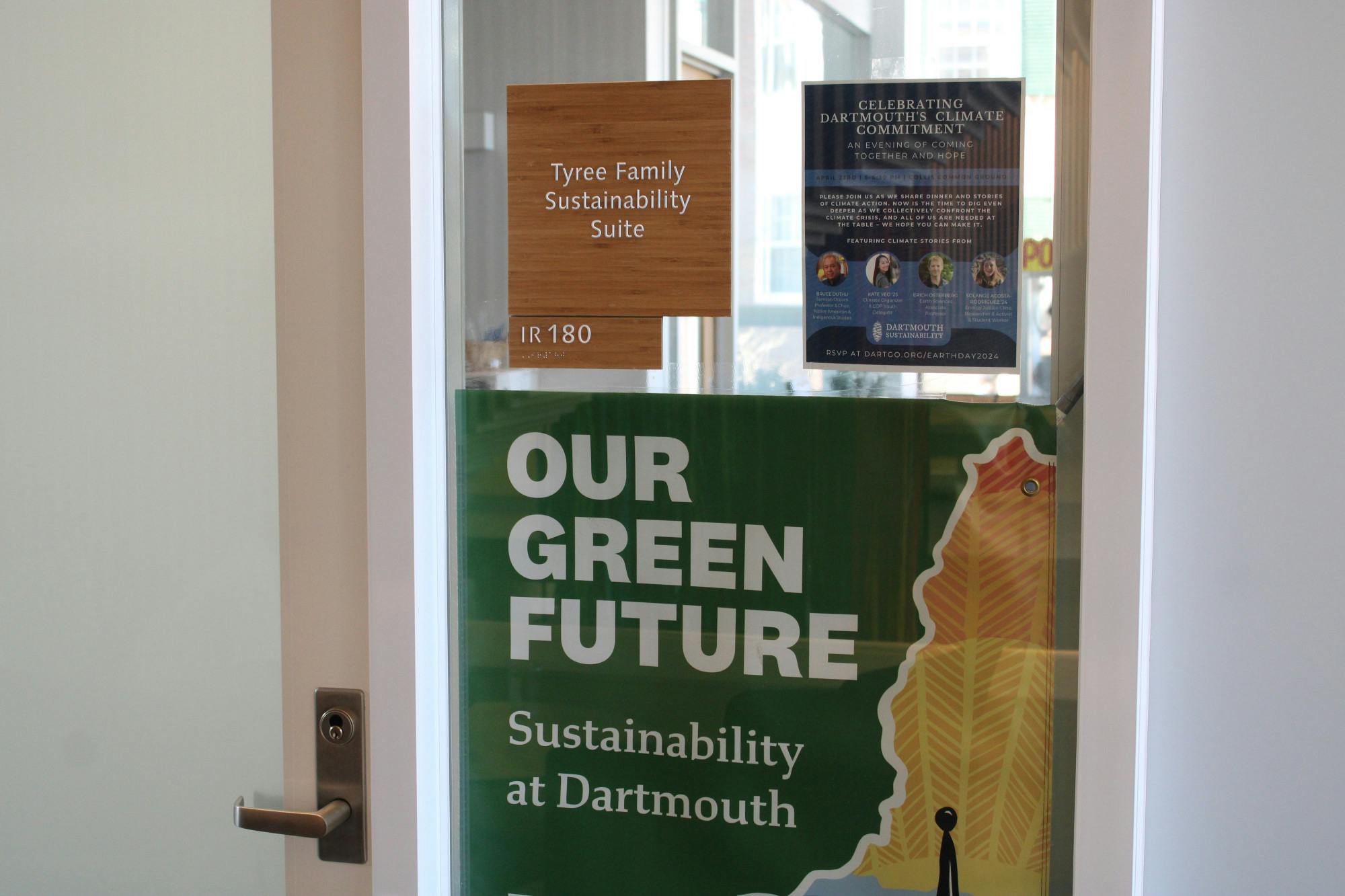On April 22, the College announced the Dartmouth Climate Collaborative, a plan to invest more than $500 million into reducing carbon emissions over the next five years, according to past reporting by The Dartmouth. The Earth Day proposal — which plans to cut emissions by 60% by 2030 and 100% by 2050 — is the largest investment focused on sustainability in College history.
In her email, Beilock also highlighted the Climate Futures Initiative, a year-long effort to strengthen Dartmouth’s climate scholarship through research and teaching.
Earth sciences professor Mathieu Morlighem said he was excited by the boldness of the Climate Collaborative.
“These goals are very aggressive — in a good way,” Morlighem said. “The targets that the president proposed are what we need. And though it’ll be a lot of hard work, we need to be aggressive when it comes to climate change. This initiative is what everyone wants — faculty, students, staff. We want to see Dartmouth shine. ”
According to Beilock’s announcement, the Dartmouth Climate Collaborative and Climate Futures Initiative approach climate change from an interdisciplinary perspective — integrating students, faculty and community engagement and encompassing “all sectors of Dartmouth’s campus.”
Earth sciences department chair Meredith Kelly said she sees the Climate Futures Initiative as a way for community members to collaborate on climate solutions.
“I think the Climate Futures Initiative is great because over the next year, it gives faculty the opportunity to work together to think about how to set up teaching and scholarship initiatives around climate change that involve everyone on campus,” Kelly said.
Some students also said they were impressed with Dartmouth’s commitment to addressing climate change. West House Senator Samay Sahu ’27 — who has collaborated with the Sustainability Office as part of Dartmouth Student Government’s student life committee — is looking forward to seeing the ways in which Dartmouth’s climate goals may inspire other institutions.
“I think that it’s so cool that we are committing to achieving real carbon zero,” Sahu said. “By positioning ourselves as a leader in developing innovative solutions to climate change, we are setting a benchmark for other higher education institutions globally.”
According to Kelly, the Climate Collaborative and Climate Futures Initiative are both centered on the work of Dartmouth faculty and students. Kelly said she sees this structure as crucial to creating tangible change.
“It’s not like someone coming in and saying, ‘Here’s a new provost for this, and they’re going to tell you what to do about this,’” Kelly said. “It really feels like a grassroots effort on campus to figure out how we want to see the climate space at Dartmouth.”
Manu Gupta ’27, a prospective environmental studies major, said the initiatives are important for incentivizing college applicants to join the Dartmouth community.
“As someone who was thinking about majoring in environmental studies, I was definitely looking at colleges’ climate commitments when deciding what school was the best fit for me,” Gupta said. “The sustainability office really stood out to me when I visited for Dimensions [of Dartmouth].”
Gupta said he also believes that while these initiatives are a meaningful step toward reducing Dartmouth’s carbon footprint, the College must continue to focus on its environmental impact. He said the College should specifically work to reduce scope three — or indirect — emissions, such as those from Dartmouth community members driving to work.
“I think there’s always more to do, but what’s really important now is to celebrate a win that the sustainable community at Dartmouth has been working really hard towards,” Gupta said.
Sustainability Office intern Evelyn Hatem ’24 said she also believes scope three emissions should be considered by the College.
“I would be excited to see Dartmouth address scope three emissions,” Hatem said. “These are harder to account for — and it can be tricky to set scope three goals — but there are ways to address these types of emissions.”
Sustainability Office intern Grace Mendolia ’24 said she is not only optimistic about the Climate Collaborative and Climate Futures Initiative but also excited to see how the Dartmouth community will continue to address climate change.
“We have a lot of resources, and we should be using all of the expertise and brilliance we have here to do good,” Mendolia said. “We are educating a lot of people here who will go on to do incredible things, and if they have a backdrop of climate education from Dartmouth, [that] will be really important for addressing climate change on a wider scale.”

Tess Bruett is a ‘27 from Milwaukee, Wisconsin. She is studying History and hopes to eventually go to law school. In her free time she enjoys hiking, working out, and reading!




